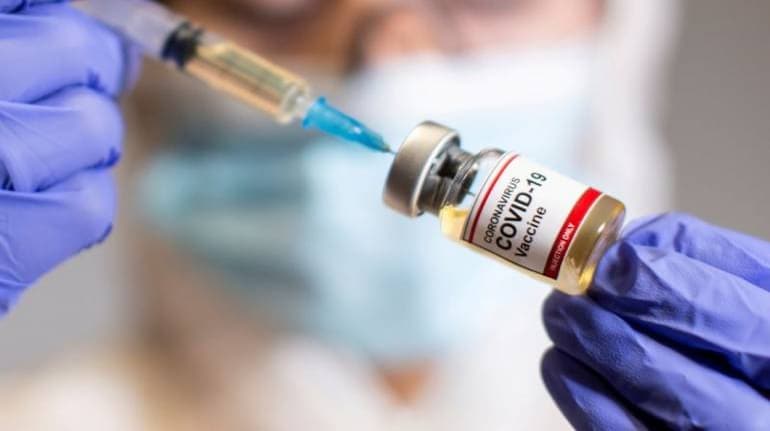Vaccine makers are preparing for the next possible phase of the Covid-19 vaccine rollout: booster doses.
While boosters are not necessary now, more information is needed to decide on whether people might eventually need booster doses of Covid-19 vaccines, but a rise in so-called breakthrough cases might offer a clue in the future, federal vaccine advisers said Wednesday.
Members of the US Centers for Disease Control and Prevention's Advisory Committee on Immunization Practices discussed when it might be time for the agency to make recommendations for booster doses and committee members mostly agreed that more data around the benefits of boosters are needed.
ACIP members agreed that a rise in "breakthrough" Covid-19 cases, which occur after someone has been fully vaccinated, could be a sign in the future that immunity is waning and booster doses of vaccine may be needed.
"What we are looking for is both a very careful look at breakthrough cases and also whether there is currently an uptick in the elderly -- that would be pretty clear because they are currently so well-controlled," said ACIP member Dr Sarah Long, a professor of paediatrics at Drexel University College of Medicine.
"It would be a mistake to be giving booster doses without both some information about number one: Do they boost? And a little bit of safety data," Long said. "So that we would have some idea that there would be the benefit of the booster before we might incur unknown risk."
Currently, three coronavirus vaccines are authorized for emergency use in the United States -- the two-dose Pfizer/BioNTech vaccine for people 12 and older, the two-dose Moderna vaccine and the single-dose Johnson & Johnson vaccines for everyone 18 and older.
Researchers and health officials suspect that the immunity against Covid-19 these vaccines elicit in the body might wane over time -- possibly after a year or more -- and might not protect as well against coronavirus variants that could emerge and evolve.
A vaccinated person might need a booster dose of vaccine to stay protected against the original coronavirus strain and newly emerging variants -- somewhat similar to how a tetanus booster is recommended every 10 years or different flu vaccines are recommended each year.
Will booster doses or new vaccines be needed?
"Many people may be familiar with tetanus-toxoid vaccines that are recommended every 10 years -- that's a booster dose. It's reminding our immune system so that if we ever got exposed to that toxin, our immune system would remember it and respond very quickly," Dr. William Moss, professor and executive director of the International Vaccine Access Center at Johns Hopkins Bloomberg School of Public Health, told CNN in May.
In the case of Covid-19 vaccines it remains unknown for how long immune protection lasts, but vaccine developers and health officials know it may not be forever -- and that emerging variants could escape immunity.
"There is a little nuance with Covid-19 vaccines," Moss said.
While typical booster doses use same vaccine someone previously received to remind the immune system about immunity to a pathogen, any future boosters for the Covid-19 shot could use different vaccines altogether.
Currently, "the need for and timing for COVID-19 booster doses have not been established. No additional doses are recommended at this time," the US Centers for Disease Control and Prevention notes on its website.
But Americans should prepare to have a Covid-19 vaccine booster shot within a year, US Surgeon General Dr. Vivek Murthy told CNN's Wolf Blitzer in May, saying "people should be prepared for the fact that we may need a booster within a year."
How often will you need a Covid-19 booster?
Despite such predictions, Dr Anthony Fauci, director of the National Institute of Allergy and Infectious Diseases, told CNN the bottom line is "we don't know."
"We're preparing for the eventuality that we might need boosters, but I think we've got to be careful not to let the people know that inevitably, x number of months from now, everyone's going to need a booster. That's just not the case," Fauci, chief medical adviser to President Joe Biden, said at a Washington Post Live event. "We may not need it for quite a while."
How vaccines stop the spread of viruses
How vaccines stop the spread of viruses 01:26
Scientists at a number of companies that make Covid-19 vaccines have also predicted the need for boosters within a year -- but the scientific community is not in widespread agreement on this.
So far, studies have shown that mRNA vaccines -- those made by Pfizer and Moderna -- maintain more than 90% efficacy six months after getting vaccinated. And scientists say it's likely much longer.
Other studies have looked at antibodies in the lab. While a decline is expected over time, Fauci told the Washington Post in May "the steepness of that slope is unclear right now."
Experts say it is also unclear how these antibody levels correlate with real-world immunity, and to what extent other parts of the immune system -- such as T cells -- could factor into protection.

 NOw CDC recommends covid vaccine boosters
NOw CDC recommends covid vaccine boosters




















.jpeg)












